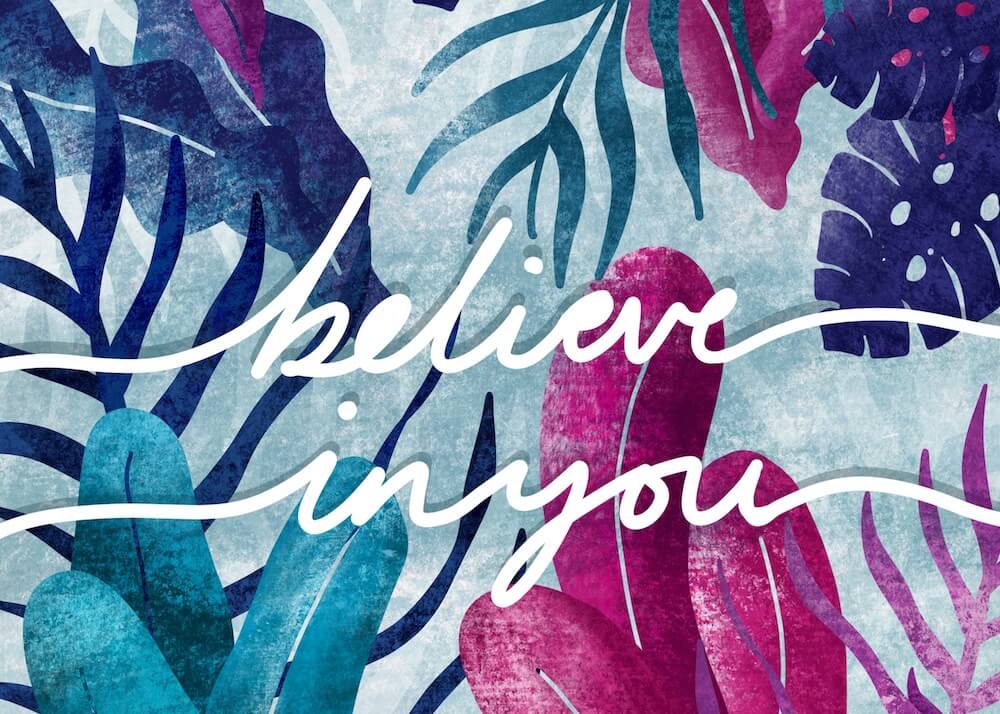
Self-doubt can hold us back from fulfilling our true potential, but what can we do about it? Coach Tiina Mokvist shares how we can cultivate self-belief
I can’t do this.” When was the last time this phrase came to mind? For me it was this morning when I was asked to do a live radio interview – they made a mistake contacting me, right?
This is self-doubt in action and almost all of us experience it at some time or other. The issue isn’t necessarily the doubt itself, but the way we react to it. As transformational coach Tiina Mokvist explains: “Self-doubt isn’t necessarily a ‘bad’ thing. It truly depends on if we let it control us or not.”
This morning I was able to take control of mine but, if this had happened a couple of years ago, I know I would have let self-doubt win. What this tells me is that it is possible to change your relationship with self-doubt.
But in our search to understand how to overcome it, it poses the question – why do we doubt ourselves in the first place?
The root of self-doubt
The answer lies in our evolution. The reason humans have thrived over time is that our brains protect us from harm and avoid risk. In the past, this was about not risking a fight with a ferocious animal outside the cave. These days the risks we face tend to be less life-threatening, and more social or psychological – but often they still instill the deep fear and dread.

Artwork | Charlotte Reynell
For example, with the radio interview, there was a chance I might say something wrong and be embarrassed. My brain, with its tribal mentality, sees this as risky, because it believes I could be shunned and pushed out of the ‘tribe’. My self-doubt was simply trying to protect me.
So a bit of second guessing is totally normal, and often we can rationalise and move past it. However, for some of us, our past experiences can make self-doubt particularly hard to shake. Tiina tells me two factors that can influence this are childhood messaging, and past trauma.
“Some of us have not had the support, encouragement, and love that we needed as children,” Tiina says. “This can lead to a deep sense of insecurity in our abilities, and manifest as insistent self-doubt that holds us back.
“And/or, something traumatic happened, an event that shook us to the core and makes us doubt ourselves in everything we do. This can be trauma with a big T or a small t.”
Big T traumas are events seen as universally traumatic, such as experiencing or witnessing serious injury, sexual violence, or other life-threatening events. Little t traumas are highly distressing but affect people on a more individual level, and may not fit into the big T category.
As a professional, Tiina has worked with many clients experiencing self-doubt. So what’s the most interesting trend she’s noticed with this? Honestly, it’s the fact that everyone doubts themselves, regardless of how they might appear on the outside.
“I have worked with high-performing, high-achieving, confident people who essentially believe in themselves, and they too doubt themselves. They may not let on that they do, and importantly they, at least on a conscious level, do not let it stop them from doing what they want. But still, the doubt is there.
“So do not think that you are alone in doubting yourself, or that there is something fundamentally wrong with you.”
Tiina has noticed a difference in men and women, but perhaps not in the way we would think. Many of us see self-doubt as more of a female problem, and there are studies to support this, but what Tiina’s noticed is that women tend to talk about it more than men.
Self-doubt is essentially a fear based on not being good enough, and that fear may need soothing from time to time
Whether it’s in the way women talk about achievements and what stands in their way, the self-doubt is pretty easy to spot, “whereas, for men, it is often a bit more veiled. This is possibly due to cultural gender conditioning, and our ideas of what a man versus a woman should be, and behave like,” she explains.
The way self-doubt shows up in our lives can vary, regardless of gender. Sometimes it’s that voice telling you ‘you can’t’, sometimes it’s more insidious. Tiina says common ways self-doubt manifests include feeling paralysed by fear, difficulty making a decision, a sense of failure before starting something, procrastination, and people-pleasing. Becoming aware of the way self-doubt manifests for you is the first step to overcoming it.
Overcoming self-doubt and building self-belief
Being willing to make a change and acknowledging that fear is there, but isn’t allowed in the driving seat anymore, is the best place to start, Tiina says. If it’s something you’ve been struggling with for a long time, you may want to call in reinforcements and speak to a professional. Depending on where you believe your self-doubt stems from, a coach or a counsellor could give you the support you need.
Talking to your doubt is the next step. “Self-doubt is essentially a fear based on not being good enough, and that fear may need soothing from time to time.”

Tiina explains that once the doubt has been ‘heard’ and soothed, it tends to loosen its grip. Thanking self-doubt for trying to protect me is a habit I’ve gotten into, and it’s surprising how powerful showing yourself compassion in this way can be.
Getting to know what self-belief feels and looks like is next. Tiina recommends reflecting on times when you’ve felt confident and in control. Try to recreate these feelings in your body the next time you need a confidence boost, and if you find it hard, think about what someone you admire would do.
Finally, it’s important to recognise that all of this takes work, and time, to implement. I am a testament to this – it’s taken a good number of years for me to build self-belief, and it requires ongoing practice.
The beauty is, the more you gently edge outside of your comfort zone, the more you prove to yourself that you can do the scary thing – even with fear in the passenger seat.

